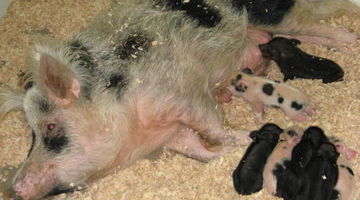In 1997, there was a worldwide ban or moratorium on pig to human transplantation – xenotransplantation – because of concerns that pig diseases could be transmitted to humans. By 1999, several research groups had shown that there was a very low risk of disease transmission. Since then, some countries, including New Zealand, Australia and Russia, are allowing pig to human transplants on a case-by-case basis. However, xenotransplants are still banned in some countries. To decide whether to allow xenotransplants, people weigh up the risk and benefits alongside their cultural, spiritual or religious views.
Teaching points
If you are discussing the ethics of pig cell transplants you might like to find out more about the risks and benefits of this technology.
Get video: Risks and benefits of pig cell transplants
Get article: Ethics of pig cell transplants
Transcript
Bob Elliott (Living Cell Technologies)
At the moment, we’re the only people doing the transplants here, and it’s based on our herd of disease-free pigs, the technology that’s here and present and going and working and approved in New Zealand. We are doing trials in Argentina at the moment, but it’s with using our technologies and the cells are sent from New Zealand to Argentina, and the whole thing is supervised by New Zealanders who go over there and make sure it all happens as it should happen.
At the moment, there are moratoriums on xenotransplantation, which is what this process is called, in a number of countries. Those numbers of countries will diminish, of course, as the news of the success of the process advances. Some countries have got no laws at all surrounding this as yet.
Some countries may prefer not to go this way. There might be religious, ethnic concerns. We are using pig cells, and you’d think Jewish people might be opposed to this. They’re not in fact, they’ve made their position quite clear on this. The Jewish law says thou shalt not eat pork, but we’re not offering it as a diet, we’re offering it as a medical treatment, and quite realistically, the Jewish authorities have said, well, that’s different, that’s a medical treatment, so it’s OK. Muslims have a variety of views on this, varying from, well, if it’s a medical treatment that’s going to do us some good, that’s fine, through to no way. So these things have been the subject of intense debate.
For people who have type 1 diabetes, the vast majority of them, all the ethical considerations, the safety considerations disappear. They say, “Yes, we are prepared to take a risk. No, we don’t really have any ethical or cultural objections if this is going to do us some good – bring it on.” They’re the people mostly concerned and their view should be the ones mostly listened to.
Acknowledgements
PRN Films
Michael Helyer


